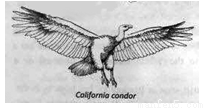题目内容
词组英汉互译
1.反复,多次_________________________
2.在……前面______________________
3.依靠,依赖__________________________
4.看不见__________________________
5.代替,取代__________________________
6.对……严格的____________________
7.put one’s hands on _____________________
8.electric shock _____________________
9.be lacking in __________________________
10.make sense of ___________________
11.apart from ___________________________
12.to one’s credit ___________________
 王后雄学案教材完全解读系列答案
王后雄学案教材完全解读系列答案 海淀课时新作业金榜卷系列答案
海淀课时新作业金榜卷系列答案 期末金牌卷系列答案
期末金牌卷系列答案书面表达
假设你班最近举行了一次班会,讨论怎样把英语学习变成一件快乐的事。请你根据下表所提示的信息,为某英语周报网站写一篇短文,谈谈你们的讨论情况并提出你的建议。
讨论情况 | 1. 课内互动 |
2. 课外活动(演讲或晚会等) | |
3. 运用英语(口头或书面交流) | |
…… | |
你的建议 | …… |
注意:
1. 对所给要点注意陈述,不要简单翻译。
2. 词数110左右。开头已经写好,不计入总词数。
参考词汇:interactive 互动的
Recently, we had a discussion on how to make learning English relaxing and fun. ____________________________________________________________________________________________
____________________________________________________________________________________________
____________________________________________________________________________________________
____________________________________________________________________________________________
____________________________________________________________________________________________
____________________________________________________________________________________________


